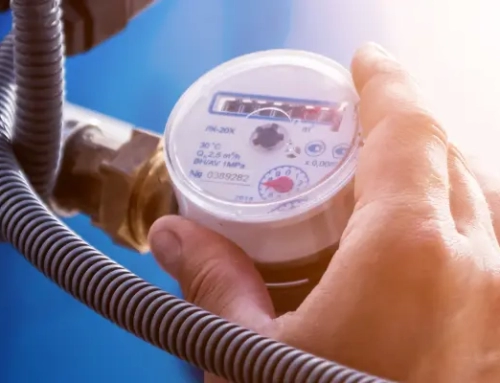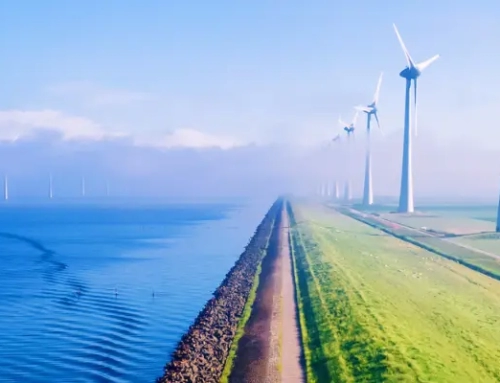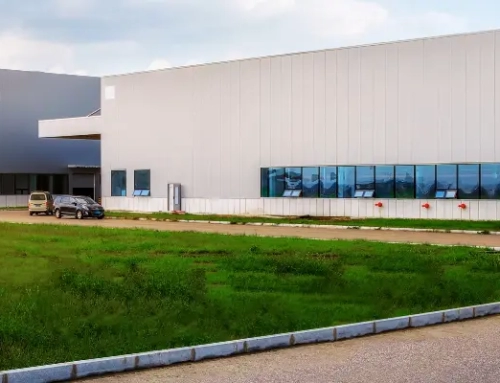Water metering explained: how it works & why it’s important
for businesses

With extreme weather conditions and a growing population putting a strain on the UK’s water networks, managing our resources effectively is more crucial than ever.
Not only that, but businesses across the UK are feeling the pressure to reduce costs and increase efficiency in every area. Water usage is a significant part of this equation, and the way you manage it can directly impact your bottom line.
In this guide, we’ll explore water metering: how it works, its benefits, and how you can integrate it into your business operations to reduce costs and improve efficiency.
What is water metering?
Water metering is the process of measuring water usage within a property or organisation with a water meter. Water meters are typically installed at entry points where water enters the property, ensuring every drop is accounted for.
By providing accurate data on water consumption, water metering allows organisations to identify areas where they can reduce usage and cut costs.
Why is water metering important?
It’s key for two reasons. Firstly, it allows for accurate billing based on actual usage rather than estimates, stopping you paying for water you haven’t used.
Secondly, it gives you valuable data that can help you conserve water and highlight areas for improvement. By providing real-time insights into water consumption, smart water metering enables users to make data-driven decisions, ultimately reducing waste and promoting sustainable practices.

How does water metering work?
Understanding the mechanics of water metering can help demystify the process and make the benefits clearer. Water metering for businesses typically involves three key stages: installation, measurement, and data collection and billing.
1. Installation
The first step is installing the water meter, which typically requires professional services to ensure accuracy and compliance with local regulations.
The meter is installed where the main water line enters the property, capturing all water usage beyond that point.
2. Measurement
Once installed, the meter begins recording the volume of water flowing through the system.
Modern meters, especially smart ones, offer real-time tracking and can alert users to unusual spikes that may indicate leaks or inefficiencies. These readings provide a continuous stream of data, capturing your water usage patterns over time.
3. Data collection & billing
Data collected by the water meter is used for both internal monitoring and external billing. For businesses, this means receiving bills that reflect actual usage, making budgeting more predictable and transparent.
Many systems also offer digital access to data, allowing you to track your consumption online and receive alerts if usage exceeds normal patterns.

How water metering can benefit your business
Now you know what it is and how it works, let’s explore the benefits water metering can bring to your business:
Benefits of water metering
Are there disadvantages of water metering?
Water metering offers your business serious advantages in the form of reduced water bills and improved efficiency – but are there any downsides?

Which businesses benefit from water metering?
Water metering can add value to businesses of all shapes and sizes, but these industries in particular can benefit from implementing metering solutions:
1. Hospitality industry
Hotels, resorts and restaurants all use significant amounts of water, making metering an essential tool for tracking and managing consumption.
By understanding usage patterns, hospitality businesses can implement measures to conserve water without compromising the guest experience, like installing low-flow fixtures or optimising laundry processes.
2. Manufacturing & industrial
For manufacturing and industrial operations, water is often a critical component of production processes. Metering helps identify high-usage areas and opportunities for recycling or reducing water use.
This not only drives sustainability but can also enhance profitability through cost savings and improved efficiency.
3. Real estate & property management
Property managers can leverage water metering to ensure fair billing practices for tenants and identify opportunities for efficiency improvements across properties.
Metering also helps in maintaining compliance with local regulations, which increasingly mandate water conservation efforts.
How can I get a water meter for my business?
You can get a meter for your home for free from most household water suppliers, but it’s a little different for businesses. Only certain business water suppliers offer meters when you sign a contract with them, which will often include water meter installation.
It’s worth seeing if your current water supplier can install a water meter, be it smart or traditional. If not, consider changing your water supplier.
You may think your business has to get its water from its regional water supplier, but as of 2017, businesses in England can choose who supplies their water. So, it’s essential to get a wide range of quotes when you’re considering changing your water supply.
That’s where we come in: at U4L, we specialise in gas, electric and water metering services. We manage the end-to-end process so your switch is hassle-free, from placing your metering contracts and managing your siteworks to installing AMR or sub-metering.
Ready to start saving? Get in touch today to find out how we can streamline your water management and reduce costs for your business.






